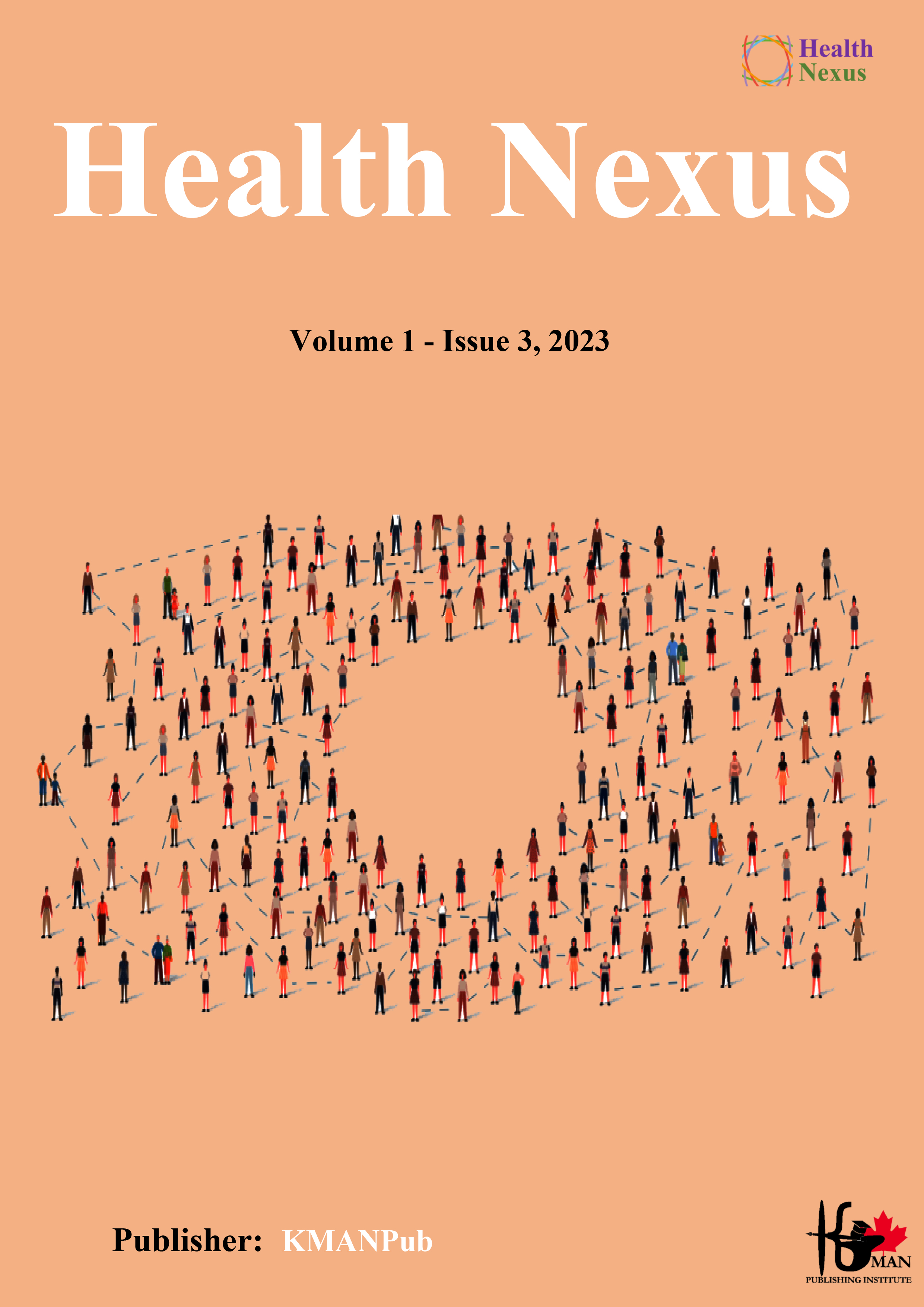Strategic Management of Technology in Psychology: Implications for Decision-Making
Keywords:
Advancement, Epidemiological Methods, Review, Contemporary ApproachesAbstract
This review article systematically examines the significant advancements in epidemiological methods from 2005 to 2023, highlighting the evolution and impact of contemporary approaches in the field. Employing a thorough literature search across key databases, the review focuses on peer-reviewed articles, reviews, and meta-analyses that underscore innovative methodologies and applications in epidemiology. The inclusion criteria prioritized studies that introduced new techniques, integrated technology, or applied interdisciplinary approaches. This article synthesizes these advancements, revealing trends such as the incorporation of big data analytics, machine learning, and genetic epidemiology, which have substantially enhanced the scope and accuracy of epidemiological research. The review also discusses the challenges and ethical considerations emerging from these advanced methods, particularly in data privacy and the complexity of analysis. The findings underscore the shift towards more dynamic, precise, and interdisciplinary methods in epidemiology, reflecting the field's adaptation to the demands of modern public health challenges. This comprehensive overview not only provides a valuable resource for epidemiologists and public health professionals but also sets the stage for future research directions, emphasizing the need for continued innovation and ethical vigilance in epidemiological practices.
Downloads
References
1. Liu C, Yang J. How hotels adjust technology-based strategy to respond to COVID-19 and gain competitive productivity (CP): strategic management process and dynamic capabilities. International Journal of Contemporary Hospitality Management. 2021;33(9):2907-31. [DOI]
2. Ramaru E, Garg L, Chakraborty C. A Hybrid Cloud Enterprise Strategic Management system. International Journal of Cloud Applications and Computing (IJCAC). 2022;12(1):1-18. [DOI]
3. Taifi N, Gharbi K. Technology Integration in Strategic Management: The Case of a Micro-Financing Institutions Network. Social E-Enterprise: Value Creation through ICT: IGI Global; 2013. p. 263-79. [DOI]
4. James P. Symposium on interdisciplinary approaches to international studies: history, psychology, technology studies, and neuroeconomics. International Studies Perspectives. 2011;12(2):89-93. [DOI]
5. Chen L, Li Y, Huang C, Li B, Xing Y, Tian D, et al. Milestones in autonomous driving and intelligent vehicles: Survey of surveys. IEEE Transactions on Intelligent Vehicles. 2022;8(2):1046-56. [DOI]
6. Marques Lameirinhas RA, Torres JPN, de Melo Cunha JP. A photovoltaic technology review: history, fundamentals and applications. Energies. 2022;15(5):1823. [DOI]
7. Allen TD, Eby LT, Chao GT, Bauer TN. Taking stock of two relational aspects of organizational life: Tracing the history and shaping the future of socialization and mentoring research. Journal of Applied psychology. 2017;102(3):324. [PMID: 28125264] [DOI]
8. Hong G, Gan X, Leonhardt C, Zhang Z, Seibert J, Busch JM, Bräse S. A brief history of OLEDs—emitter development and industry milestones. Advanced Materials. 2021;33(9):2005630. [PMID: 33458866] [DOI]
9. Abalaka GE, Agbaje YT. Strategic Human Resource Management (SHRM) Concepts and Models for Virtual Organization Management: A Literature Review. 2023. [DOI]
10. Sato D, Ishioka M. A Study on Strategic Application of Business Ecosystem to Practical Management System. Journal of Business & Economics Review (JBER). 2023;7(4). [DOI]
11. Masuda Y. Adaptive integrated digital architecture framework: risk management case. Architecting the Digital Transformation: Digital Business, Technology, Decision Support, Management. 2021:223-45. [DOI]
12. Li Z, Lu Z, Yin M. Modeling Human Trust and Reliance in AI-Assisted Decision Making: A Markovian Approach. 2023. [DOI]
13. Allam K, Rodwal A. AI-DRIVEN BIG DATA ANALYTICS: UNVEILING INSIGHTS FOR BUSINESS ADVANCEMENT. EPH-International Journal of Science And Engineering. 2023;9(3):53-8. [DOI]
14. Raman R, Buddhi D, Lakhera G, Gupta Z, Joshi A, Saini D, editors. An investigation on the role of artificial intelligence in scalable visual data analytics2023 2023: IEEE. [DOI]
15. Javaid M, Khan IH. Virtual reality (VR) applications in cardiology: a review. Journal of Industrial Integration and Management. 2022;7(02):183-202. [DOI]
16. Ayhan Y. The Impact of Artificial Intelligence on Psychiatry: Benefits and Concerns-An assay from a disputed ‘author’. Turkish Journal of Psychiatry. 2023;34(2):65. [PMID: 38022756] [PMCID: PMC10679978] [DOI]
17. Mika N, Nadezhda G, Jaana L, Raija K, editors. Ethical AI for the governance of the Society: Challenges and opportunities2019 2019.
18. DiChristina W. Structural justice ethics in health care. Voices in Bioethics. 2021;7. [DOI]
19. Lipu MH, Miah MS, Jamal T, Rahman T, Ansari S, Rahman MS, et al. Artificial Intelligence Approaches for Advanced Battery Management System in Electric Vehicle Applications: A Statistical Analysis towards Future Research Opportunities. Vehicles. 2023;6(1):22-70. [DOI]
20. Omol EJ. Organizational digital transformation: from evolution to future trends. Digital Transformation and Society. 2023. [DOI]
21. Przytuła S, Strzelec G, Krysińska-Kościańska K. Re-vision of future trends in human resource management (HRM) after COVID-19. Journal of Intercultural Management. 2020;12(4):70-90. [DOI]
22. Abbo AR, Miller A, Gazit T, Savir Y, Caspi O. Technological developments and strategic management for overcoming the COVID-19 challenge within the hospital setting in Israel. Rambam Maimonides Medical Journal. 2020;11(3). [PMID: 32792042] [PMCID: PMC7426553] [DOI]
23. Goceva M, Bojkov V. DEVELOPMENT AND MANAGEMENT OF CHANGES IN ORGANIZATIONS. KNOWLEDGE - International Journal. 2021;47(1):51-7. [DOI]
24. Malinoshevska K. IMPLEMENTATION OF THE COMPANY'S ECONOMIC DEVELOPMENT STRATEGY. Three Seas Economic Journal. 2022;3(1):105-10. [PMID: 35911944] [DOI]
25. Kessel F, Rosenfield P, Anderson N. Expanding the boundaries of health and social science: case studies in interdisciplinary innovation: Oxford University Press; 2003.
26. Cullati S, Carmeli C, Burton-Jeangros C, Chiolero A. How the life course perspective transforms epidemiology. Revue Medicale Suisse. 2021;17(730):529-33. [PMID: 33755362] [DOI]
27. Weissman M. Translating epidemiology in psychiatry: the future is here. Epidemiology and psychiatric sciences. 2012;21(2):167-9. [PMID: 22789165] [PMCID: PMC3536441] [DOI]
Downloads
Additional Files
Published
Issue
Section
Categories
License
Copyright (c) 2023 Kamdin Parsakia (Author); Saeed Kazemi (Corresponding Author); Sina Sadeghi (Author)

This work is licensed under a Creative Commons Attribution-NonCommercial 4.0 International License.
















